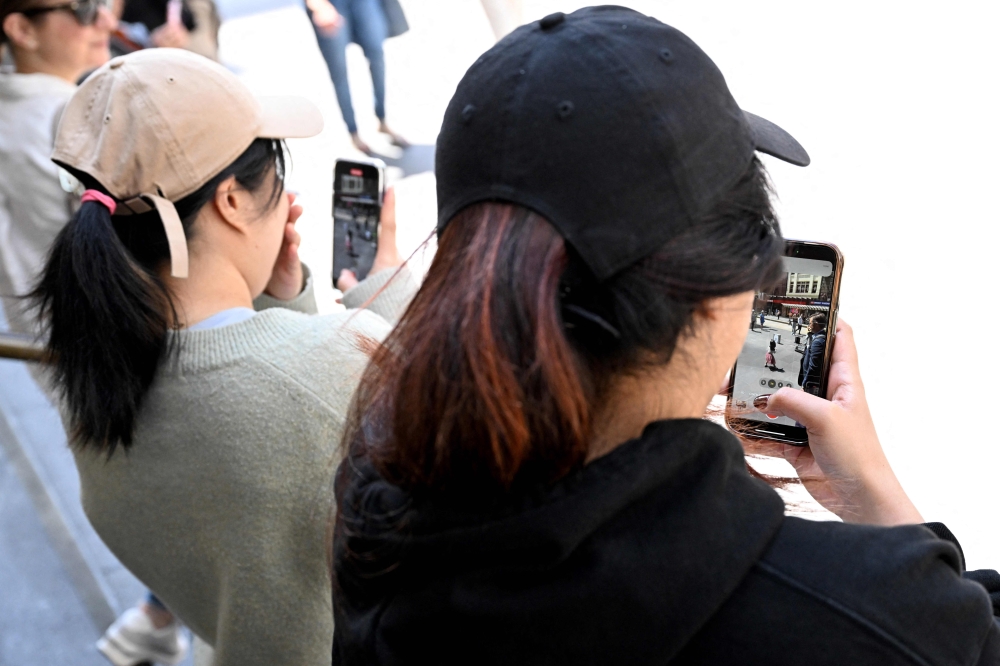DECEMBER 14 — It is December, which means that the season of Spotify Wrapped has arrived while for Apple Music users, it is Apple Music Replay.
As a linguist, I look forward to the linguistic equivalent of Spotify Wrapped which is the announcement of dictionaries’ Word of the Year.
The selection of the Word of the Year is a common end-of-year exercise for English dictionaries whereby their team of lexicographers shortlist new words and evaluate their use through several criteria such as their popularity in use and global relevance in general.
As an academic who is in between two generations, I use and can relate to both millennial and Gen Z slangs. Trends in language are, afterall, reflective of human experiences and realities.
Last year, the Oxford English Dictionary (OED) selected “rizz” as their Word of the Year, which means that this year, almost everyone knows what the word means 一 yes, even boomers use the word now.
Just after the movie Wicked was released, Ariana Grande and Cynthia Erivo did an interview special with Jimmy Fallon where they sang a song which is essentially a blurb about their characters.
A TikTok user said, “Ariana Grande saying ‘rizz’ was not on my 2024 bingo card” and unsurprisingly, the song caught on as a trending audio on TikTok which people use to record themselves, usually with a partner who is presumably their best friend and it became marketing material for the movie.
To be fair, “the song is good” and it is “kind of a bop” #iykyk. While the word was predominantly used by zoomers, it has now caught on in its use and is used on the big screen too.
This goes to show that language shapes and is shaped by reality. Language users co-create, re-create and enhance meanings in daily interactions, which consequently, lead to certain trends in language use.
One of the hallmarks of human language is creativity which means that language is constantly evolving and expanding, enriching our experiences and realities.
While Word of the Year typically captures a sense of zeitgeist of the year, they may not necessarily reflect generalisability.
Lexicographers, using an established practice, record words of a language that are used widely by their speech community (and in the case of English, it is a huge speech community with differing characteristics, but that is a conversation for another day), in understood contexts, by examining the occurrences and patterns of use.
Over time, words evolve; sometimes, new words are added and sometimes, existing ones receive an extension of meaning or senses.
While lexicographers record words and their meanings, linguists study the different aspects of languages, starting from the smallest of units of language to the bigger ones.
Looking bigger means zooming out beyond the minute use of language, taking into account contextual knowledge about socio-political realities of the world.
Language is not simply a noun, it is also a verb and we are all languaging. We are all active users of language and we use language with deliberate purpose. Language is negotiation of meaning with others.
This year, the OED has selected the word “brain rot” which means a deterioration of an individual’s mental or intellectual state due to overconsumption of online media content.
How did we go from a fun word in 2023 to such a depressing word this year? Let’s unpack this together.
Social media and the online world has become our bread and butter, so much so that there are terms such as FOMO (fear of missing out) and its reactionary pair, JOMO (joy of missing out).
A 20th-century philosopher Michel Foucault once said, where there is power, there is resistance.
Social media has become so powerful that people either feel the impulse to keep up with online trends and to know what goes on there or attempt to do a digital detox to quell the social media “addiction”.
Either way, there is no denying the monumental impact that social media has both on the offline and online worlds.
Brain rot being named as OED’s Word of the Year for 2024 is reflective of the reality that we are now drowning in bite-sized, short contents that aim to capture the attention of social media users.
When Henry David Thoreau, a 19th-century philosopher first used the word in 1854, he used it to criticise society’s devaluation of complex ideas.
What we are now experiencing is the move towards making content consumption more accessible and efficient.
However, in the pursuit of that, we risk annihilation of thoughts, especially among the younger generations who live as digital natives.
The younger generation cannot escape the digital world even if they want to; the trends online will resurface in our everyday conversations, one way or another.
The rising popularity of TikTok is a double-edged sword. Our own thinker, the late Dr Syed Hussein Alatas warned us against what he called bebalism and the lack of critical thinking in society.

While we run the risk of undoing years of the pursuit of knowledge, academics play a quintessential role in reviving the true spirit of academia by attempting to understand the world better in the little ways we could.
That way, we could deepen our understanding of the world and hopefully, inspire our students to do the same through critical digital literacy.
* Dr Nik Soffiya Nik Mat is a senior lecturer at the Faculty of Languages and Linguistics, Universiti Malaya
** This is the personal opinion of the writer or publication and does not necessarily represent the views of Malay Mail





















